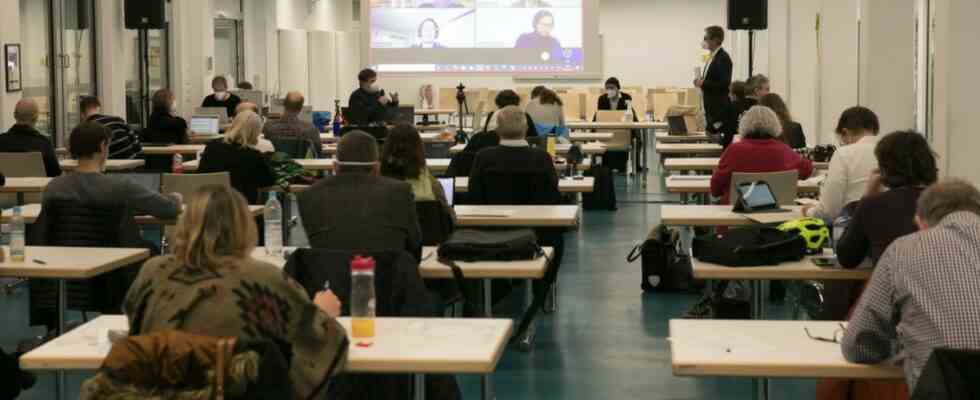For 75 years they have been an important cornerstone of municipal democracy – the 25 Munich district committees. As political bodies, they take care of the concerns of the citizens in their districts and forward their concerns and wishes to the municipality. The 683 local politicians who are currently active on a voluntary basis are also valued partners for the administration as local experts.
District committee work as a successful project? Definitely from the city’s point of view – which is why the anniversary should be celebrated with a big ceremony on October 17th with the participation of the district committees.
When the city council decided in 1947 to form 41 district committees from the action committees that had already been set up by citizens, the aim was still to “encourage community citizens to participate in public affairs”. So shortly after the end of the Second World War, tasks such as rubble removal and reconstruction were in the foreground. It was also important to first establish a democratic community.
In the following decades, the statutes changed – again and again. In the 1970s, for the first time, the city council was required to consider applications from district committees (BAs) within three months. Milestones followed, such as the transfer of decision-making rights to the now only 25 BAs in the 1990s, the direct election of committee members as a result of the popular initiative “More Democracy in Bavaria” and the introduction of a district committee budget in the 2000s. The latter was financially upgraded again in 2018 by increasing the amount and converting it into a district budget.
Hybrid sessions should be possible in the future – quite an effort for the BAs
For several years, however, the district representatives have been confronted with more tasks than ever before. On the one hand, this is due to the population growth in Munich: more residents in the district quickly means more questions, calls and applications. Above all, however, the extra work is due to the increasing digitization of many business processes. An example: the introduction of hybrid sessions and live streams at the sessions. Some bodies already have experience with these formats, such as Neuhausen-Nymphenburg. Others haven’t looked into it at all.
According to the city board of directors, all district committees should in future be able to hold face-to-face meetings with individual committee members connected virtually. In order to be able to hold hybrid subcommittee meetings, all branches will be successively given conference rooms with the appropriate IT. And for the meetings of the full committees, five “hybrid cases” are to be purchased, which the technicians will set up and install. Five because meetings of several district committees often take place at the same time. The suitcases are available in the cultural department and only have to be called up by the BAs. Live streams are then also possible, but the listeners have no opportunity to speak here.
The city also plans to make the “valuable work of the city district committees” even better known. Several building blocks are planned: On the one hand, the district committees are to have their “own, up-to-date internet presence” with a focus on interactive elements. But there are also new brochures about the individual districts with the most important data and facts about the quarters.
And a third point: At the “Long Day of District Culture” on November 12th, which will take place in almost all cultural centers, the committees will have the opportunity to present themselves to an audience that they might otherwise reach less well. With information stands, workshops or other creative ideas.

